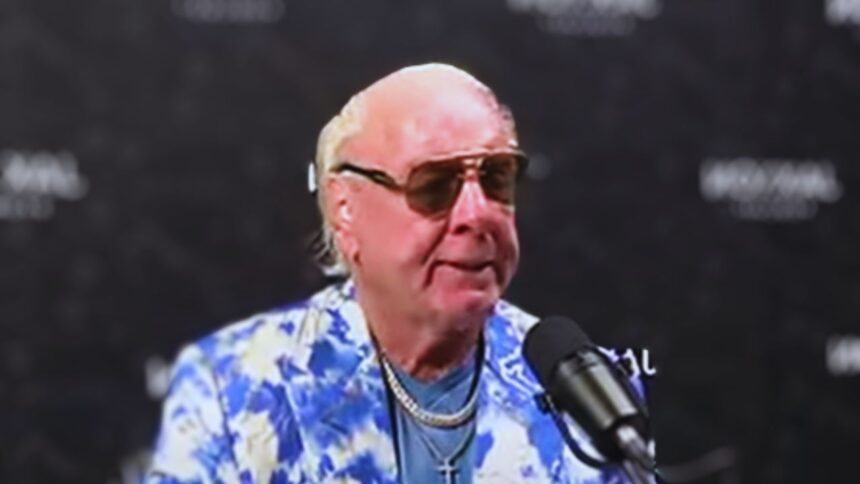In a surprising turn of events, wrestling icon Ric Flair has publicly extended apologies to key figures involved in the tumultuous history of World Championship Wrestling (WCW), marking a significant moment in wrestling history long after the promotion’s demise.
Flair’s Apology and Reconciliation
Following heated exchanges sparked by the new documentary “Who Killed WCW?”, Ric Flair initially pointed fingers at Vince Russo, Eric Bischoff, and Jim Herd for the downfall of WCW. However, Flair swiftly backtracked on his criticisms, opting instead to bury the hatchet and mend fences with his former colleagues.
In a heartfelt message on social media, Flair expressed regret for his previous comments, acknowledging his lack of understanding regarding the internal dynamics and challenges faced by Russo, Bischoff, and Herd during their tenures. He emphasized a desire for reconciliation and better relationships, reflecting a newfound perspective on the complexities of the wrestling business.
Russo’s Response and Peaceful Resolution
Vince Russo, known for his controversial creative decisions during his stint with WCW, responded graciously to Flair’s apology. Russo conveyed that he harbors no resentment and appreciates Flair’s gesture, emphasizing a sense of closure and peace with the past. His comments underscored a mutual willingness to move forward and leave grievances behind.
Stephen’s Insight
Flair’s apology not only brings to light the enduring influence of WCW’s legacy but also underscores the evolving interpersonal dynamics within the wrestling industry. It serves as a poignant reminder of the human elements behind the grandeur of larger-than-life personas and emphasizes the maturity required to mend old wounds.
The apology from Flair resonates beyond individual relationships, symbolizing a broader shift towards introspection and reconciliation within wrestling. By addressing past conflicts and expressing remorse, he acknowledges the complexities of personal interactions amidst the competitive and theatrical realm of professional wrestling.
This moment of reconciliation not only honors WCW’s impactful legacy but also reflects a deeper understanding of the emotional investments and challenges faced by those within the industry. It underscores the importance of growth and forgiveness, promoting a culture of mutual respect and understanding among wrestlers, past and present.
In essence, Flair’s apology serves as a powerful example of how personal reflection and humility can contribute to the ongoing evolution of the wrestling community, fostering stronger connections and laying the groundwork for a more united and supportive environment moving forward.




